In a world increasingly connected through digital threads, a paradox emerges: many of us feel profoundly lonely. This feeling of disconnection, of being isolated from others, can take a serious toll on our mental and physical well-being. But what if the key to overcoming loneliness isn’t just forging more external connections, but nurturing a deeper connection within ourselves?
While the popular narrative often focuses on the lack of social interaction as the root cause of loneliness, exploring self-connection offers a powerful alternative and, often, a necessary precursor to building healthier relationships.
Loneliness: More Than Just Being Alone
It’s crucial to understand that loneliness isn’t synonymous with solitude. You can be surrounded by people and still feel deeply lonely. Loneliness is a subjective experience, a perceived gap between the social connections we desire and the connections we actually have. It’s about the quality, not just the quantity, of our relationships.
In our increasingly connected world, it’s easy to fall into the trap of chasing a large social network, accumulating contacts like trophies. However, the true richness of our lives isn’t measured by the sheer number of people we know, but by the depth and quality of the relationships we cultivate. A handful of genuine connections, built on trust, mutual respect, and shared vulnerability, will always be more fulfilling and supportive than a superficial collection of acquaintances. Investing in the emotional labor required to nurture meaningful bonds yields dividends in terms of happiness, well-being, and a sense of belonging that simply can’t be replicated by a large, but ultimately shallow, social circle. It’s about prioritizing genuine connection over mere contact.
This perceived disconnect can stem from various factors:
- Feeling misunderstood: Believing that no one truly understands your thoughts, feelings, or experiences.
- Lack of emotional intimacy: Missing a deep connection where you can share your vulnerabilities and feel truly seen.
- Social isolation: Limited opportunities for social interaction due to factors like geographical location, health issues, or social anxiety.
- Changes in life circumstances: Job loss, moving to a new city, or the end of a significant relationship can disrupt established social networks.
- The Power of Self-Connection
Self-connection is the ability to be present with yourself, to understand your own needs, and to treat yourself with compassion and kindness. It’s about cultivating an inner sense of belonging and acceptance. This inner foundation provides a stable base from which to navigate the external world and build meaningful relationships.
Here’s how self-connection can help combat loneliness:
- Increased Self-Awareness: Understanding your own emotions, values, and needs allows you to communicate them more clearly to others, fostering deeper understanding in your relationships.
- Enhanced Self-Compassion: When you treat yourself with kindness and understanding, especially during difficult times, you’re less likely to rely solely on others for validation and support. This fosters resilience and reduces the fear of rejection.
- Improved Mental Well-being: Self-connection is linked to reduced anxiety, depression, and stress, creating a more positive and balanced emotional state. This, in turn, makes you more approachable and engaging to others.
- Stronger Boundaries: Knowing your own limits and needs allows you to establish healthy boundaries in your relationships. This protects you from being taken advantage of and fosters mutual respect.
- Greater Authenticity: When you’re comfortable with who you are, you’re more likely to show up authentically in your interactions with others, attracting people who genuinely appreciate you.
- Cultivating Self-Connection: Practical Steps
Building a stronger connection with yourself is an ongoing journey, not a destination. Here are some practices you can incorporate into your daily life:
- Mindfulness Meditation: Paying attention to your thoughts and feelings without judgment can help you become more aware of your inner landscape.
- Journaling: Writing down your thoughts, feelings, and experiences can provide clarity and insight into your inner world.
- Spending Time in Nature: Connecting with the natural world can be a deeply grounding and restorative experience.
- Self-Care Activities: Engaging in activities that nurture your mind, body, and soul, such as reading, listening to music, taking a relaxing bath, or pursuing a hobby.
- Practicing Self-Compassion: Treat yourself with the same kindness and understanding you would offer a friend.
- Setting Boundaries: Learn to say no when you need to protect your time, energy, and well-being.
- Identifying Your Values: Understanding what’s important to you can help you make choices that align with your authentic self.
Moving Forward: A Balanced Approach
While self-connection is crucial, it’s important to remember that human beings are social creatures. Building meaningful relationships is an essential part of a fulfilling life. The key is to find a balance between cultivating self-connection and nurturing external connections.
By prioritizing self-connection, you’ll be better equipped to navigate the complexities of
relationships, build authentic connections, and ultimately, overcome the feeling of loneliness. Remember, the journey to connection begins within.
Prioritizing self-connection is about making conscious choices to nurture your inner world. It’s carving out spaces, both physical and mental, to check in with yourself, understand your needs, and cultivate a deeper sense of self-awareness. This might involve activities like meditation, journaling, spending time in nature, or simply sitting quietly with your thoughts. The goal is to move beyond the constant external stimulation and demands, creating a refuge where you can listen to your intuition, process your emotions, and reconnect with your core values.



